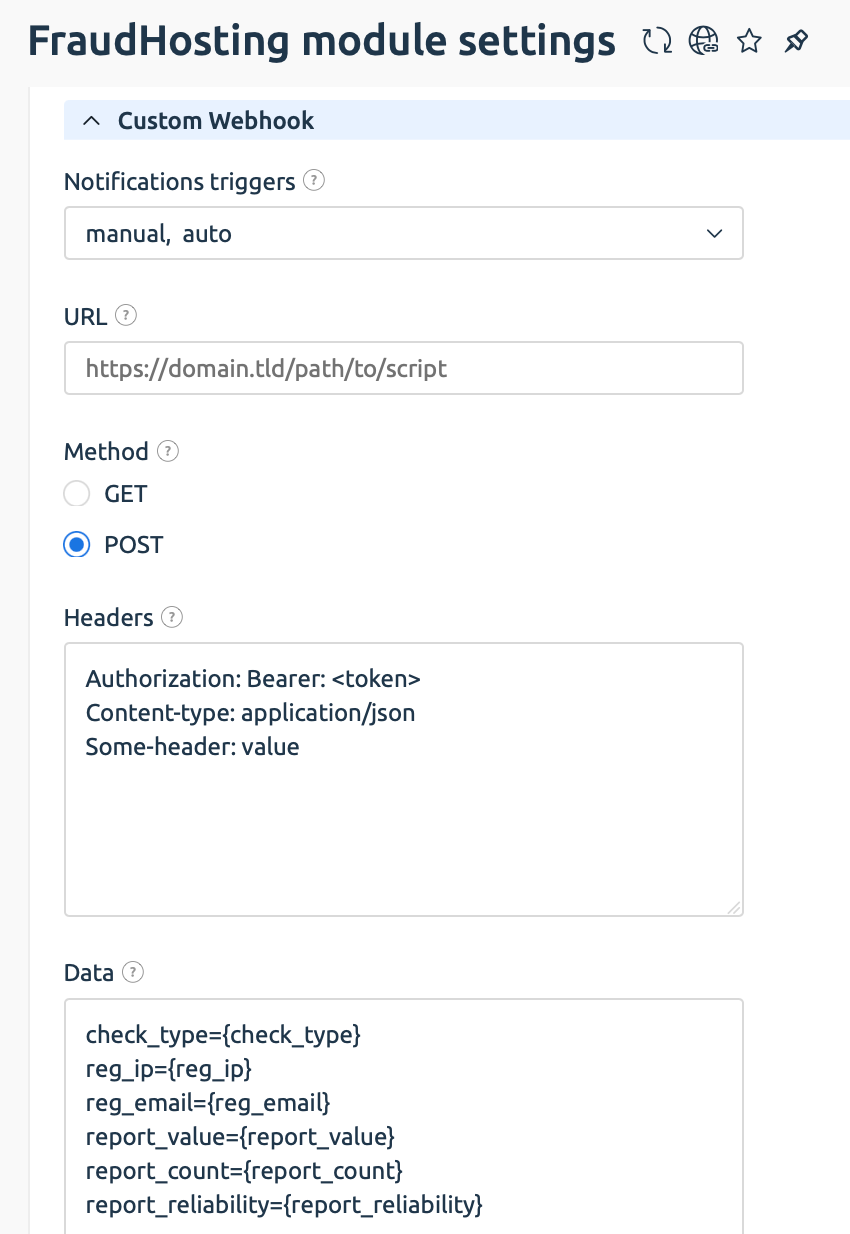Custom webhooks
This section describes how you can setup custom webhook when client is bad for different triggers.

Configure notifications
Settings
Enter values to get notifications to the Telegram
| Setting | Description |
|---|---|
| Notifications triggers | Select when module need to send notification |
| URL | Enter webhook URL |
| Method | Select request method. GET or POST |
| Headers | If you need to send webhook with specific headers, enter each one from new line |
| Data | If you are using POST, enter the data content. It can be x-www-form-urlencoded or JSON, XML or anything else |
Shortcodes
You can use shortcodes in the data. When webhook send, plugin will replace shortcodes with actual values.
| Shortcode | Description |
|---|---|
{check_type} | Check type: manual or auto |
{account_id} | Client account ID |
{reg_ip} | Client register IP address |
{reg_email} | Email address of the main user of the client |
{report_value} | Sum of the all report values sent for the client |
{report_count} | Number of report sent for the client |
{report_reliability} | Report Reliability, indicates how many times client reported and queried |
{report_code} | Report code, you can check result, just add it to the URL: https://fraud.hosting/api/?showreport= |
Example data
JSON content:
{
"check_type": "{check_type}",
"account_id": "{account_id}",
"reg_ip": "{reg_ip}",
"reg_email": "{reg_email}",
"report_value": "{report_value}",
"report_count": "{report_count}",
"report_reliability": "{report_reliability}"
}x-www-form-urlencoded content:
check_type={check_type}
account_id={account_id}
reg_ip={reg_ip}
reg_email={reg_email}
report_value={report_value}
report_count={report_count}
report_reliability={report_reliability}XML content:
<?xml version="1.0" encoding="UTF-8" ?>
<root>
<check_type>{check_type}</check_type>
<account_id>{account_id}</account_id>
<reg_ip>{reg_ip}</reg_ip>
<reg_email>{reg_email}</reg_email>
<report_value>{report_value}</report_value>
<report_count>{report_count}</report_count>
<report_reliability>{report_reliability}</report_reliability>
</root>